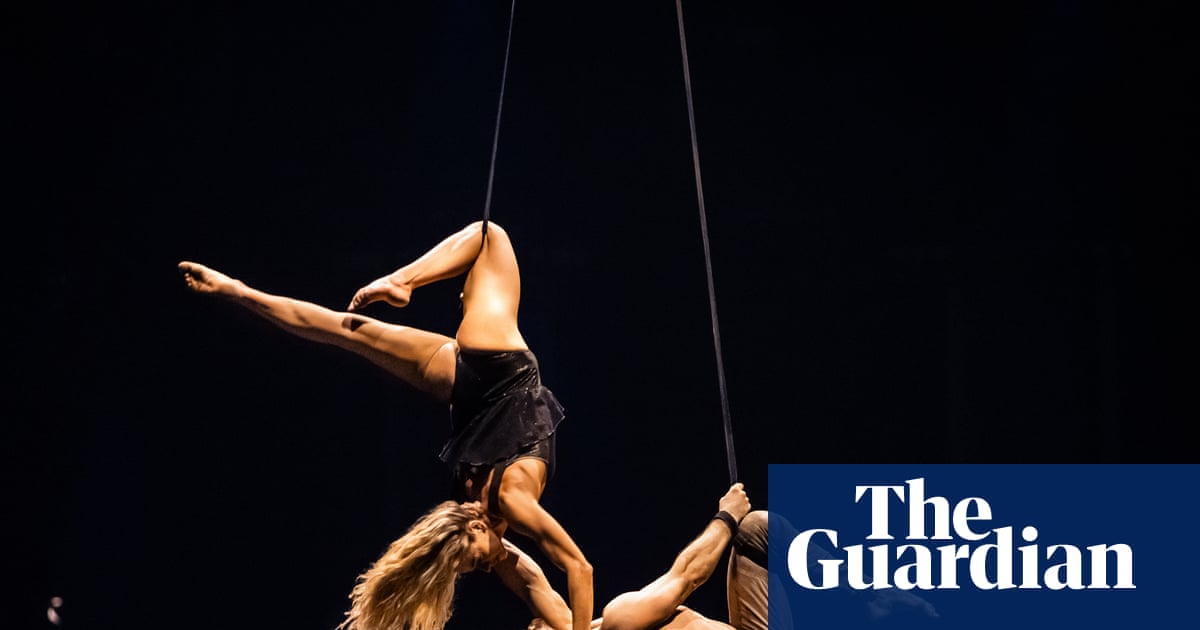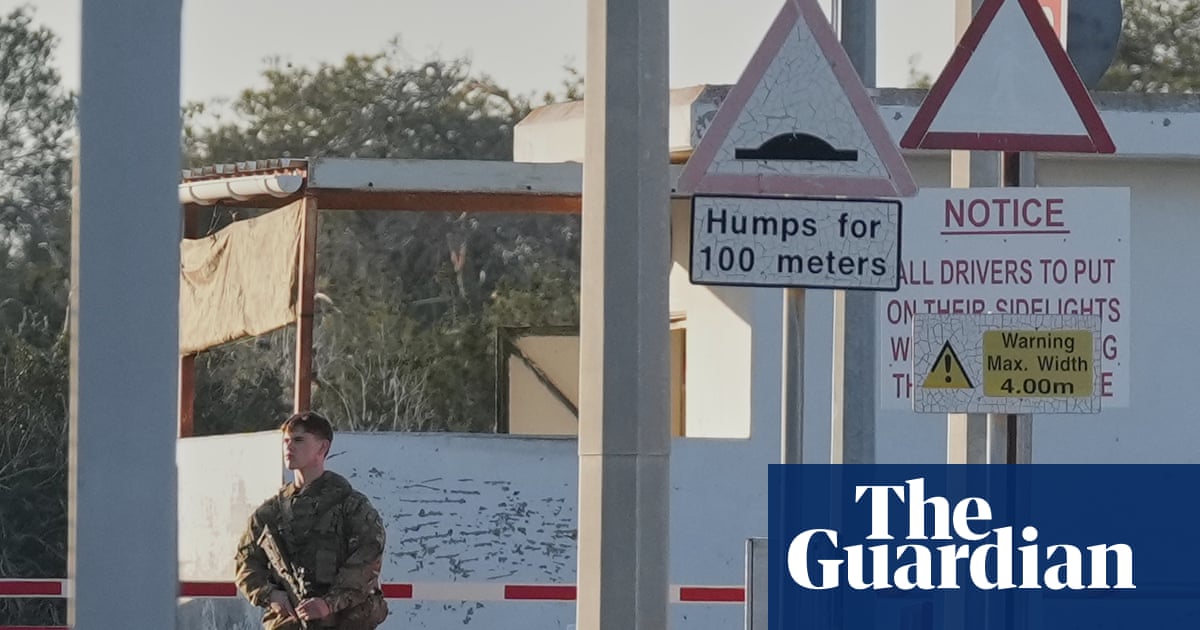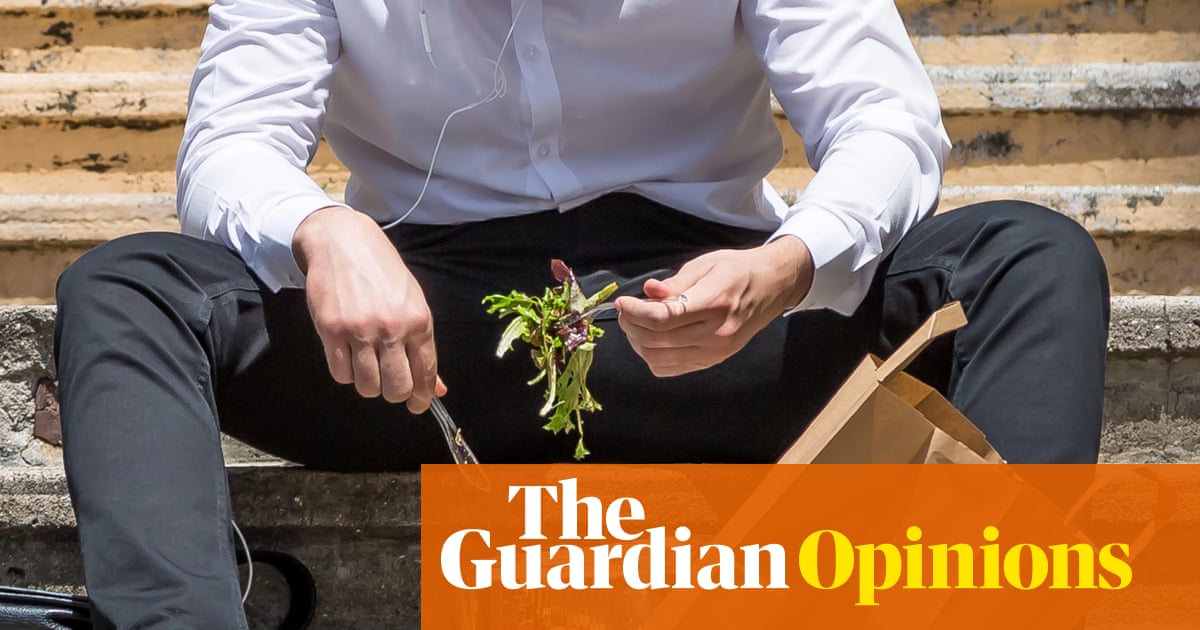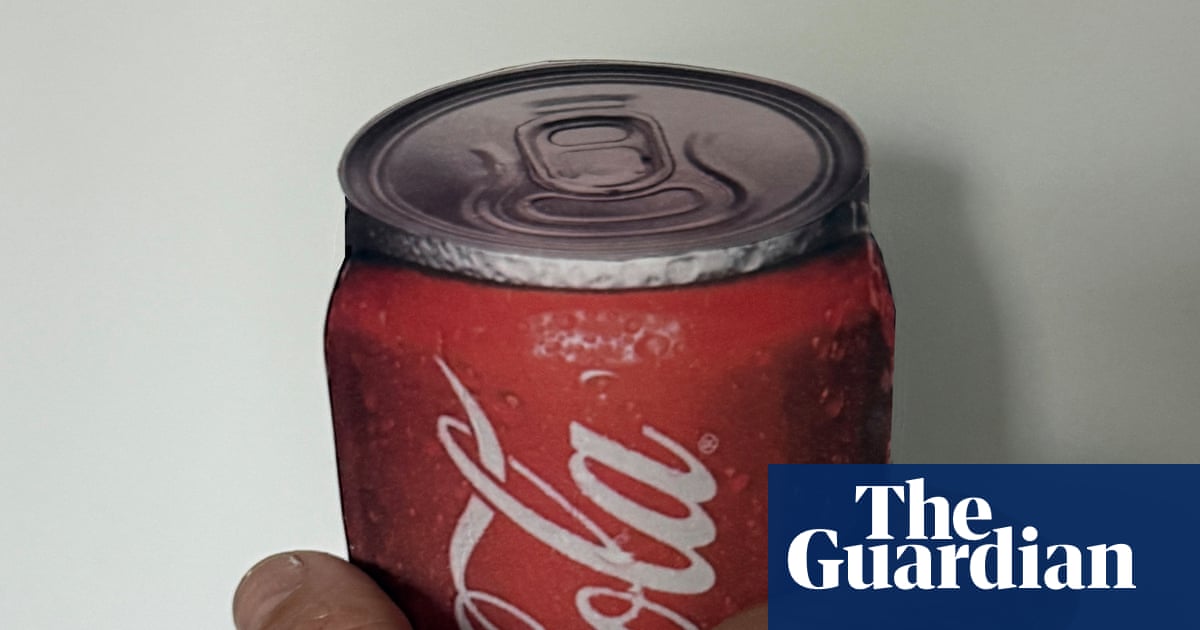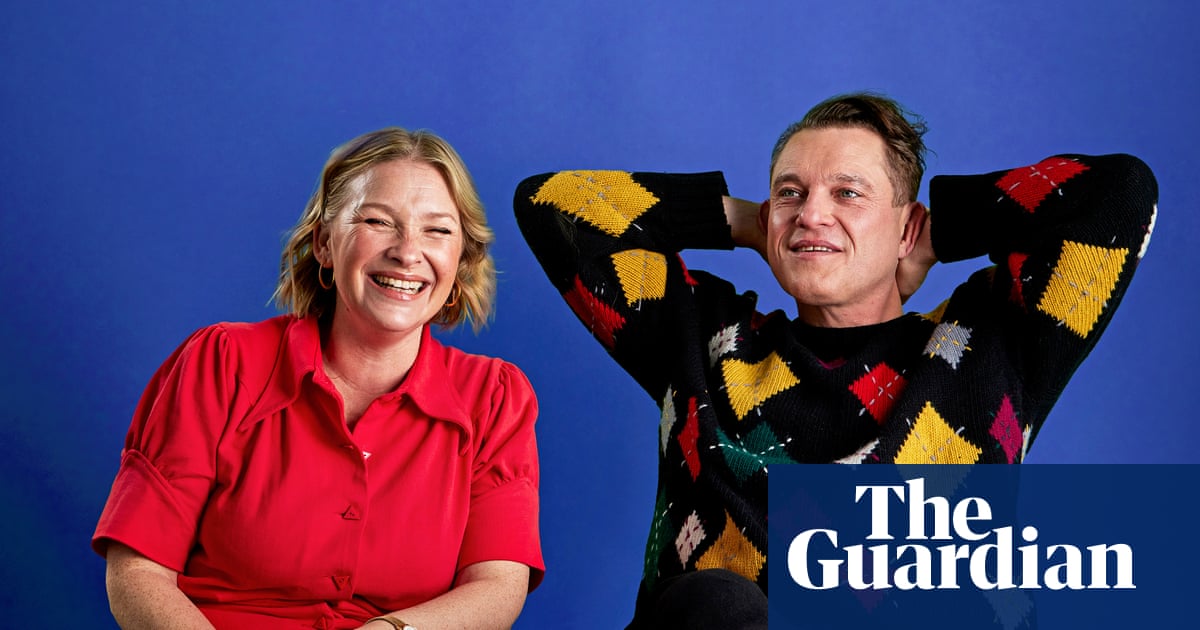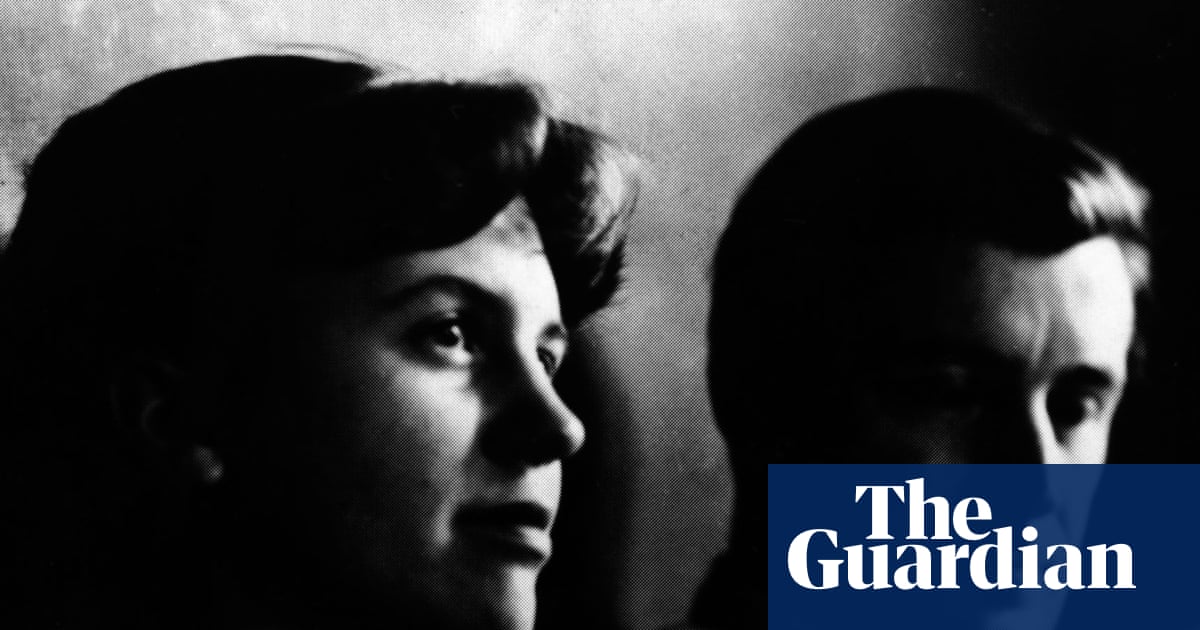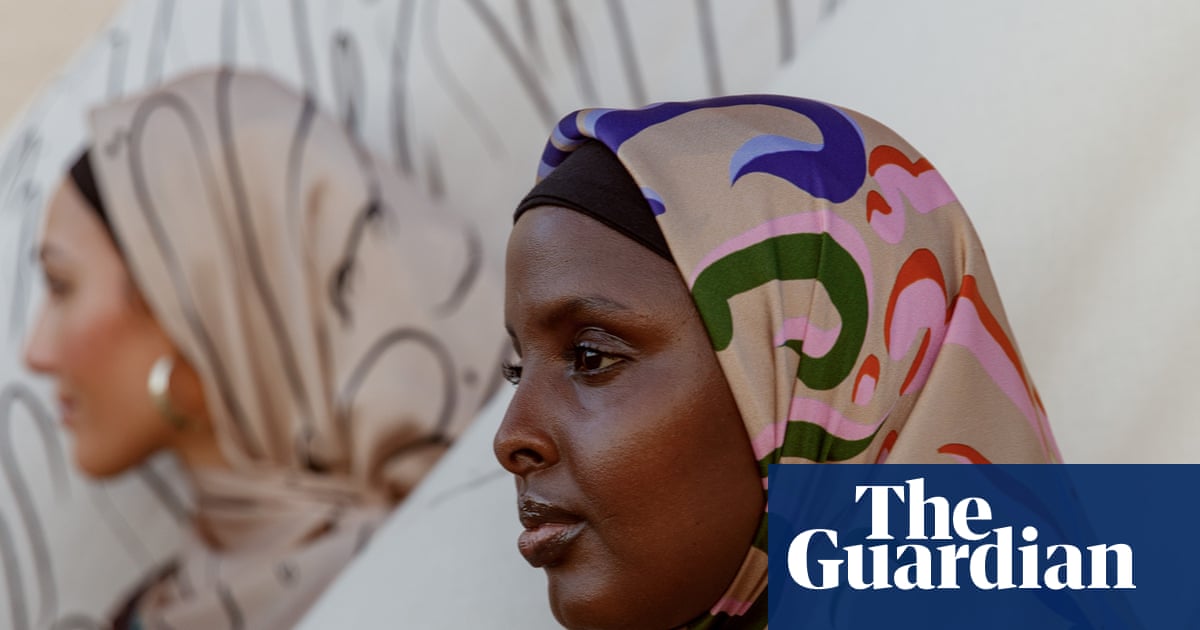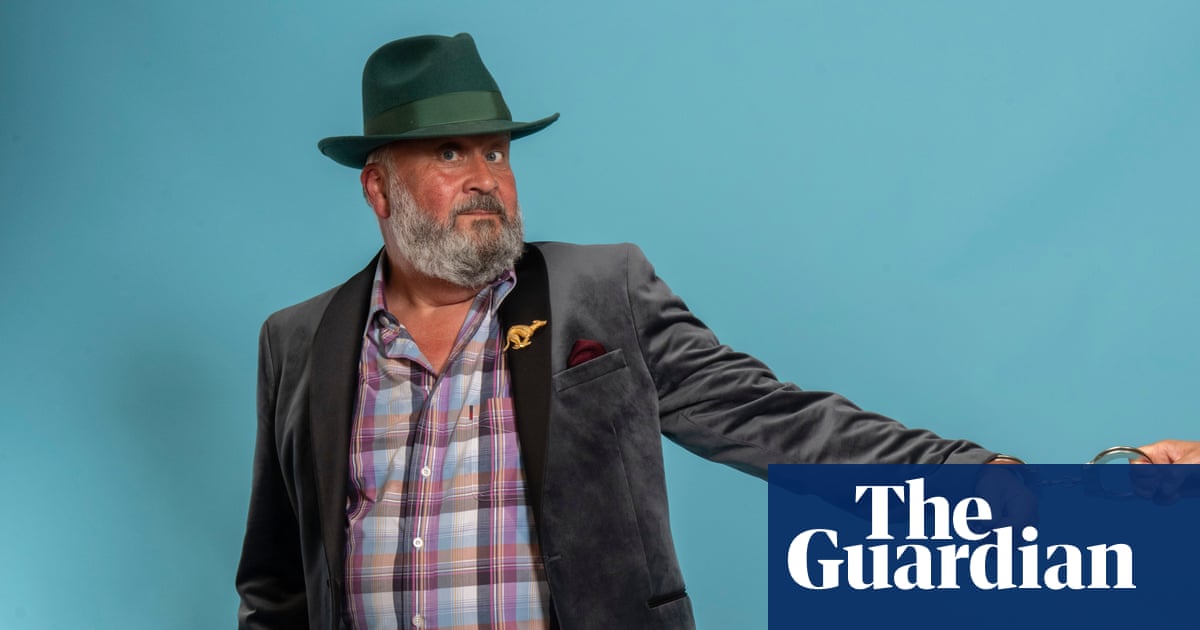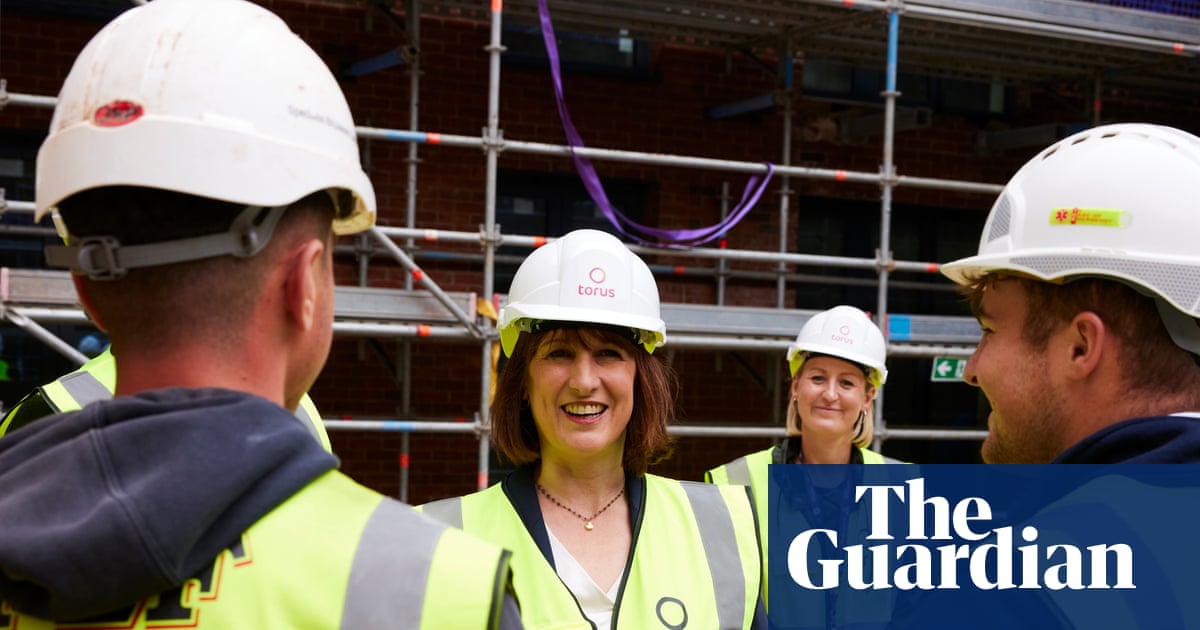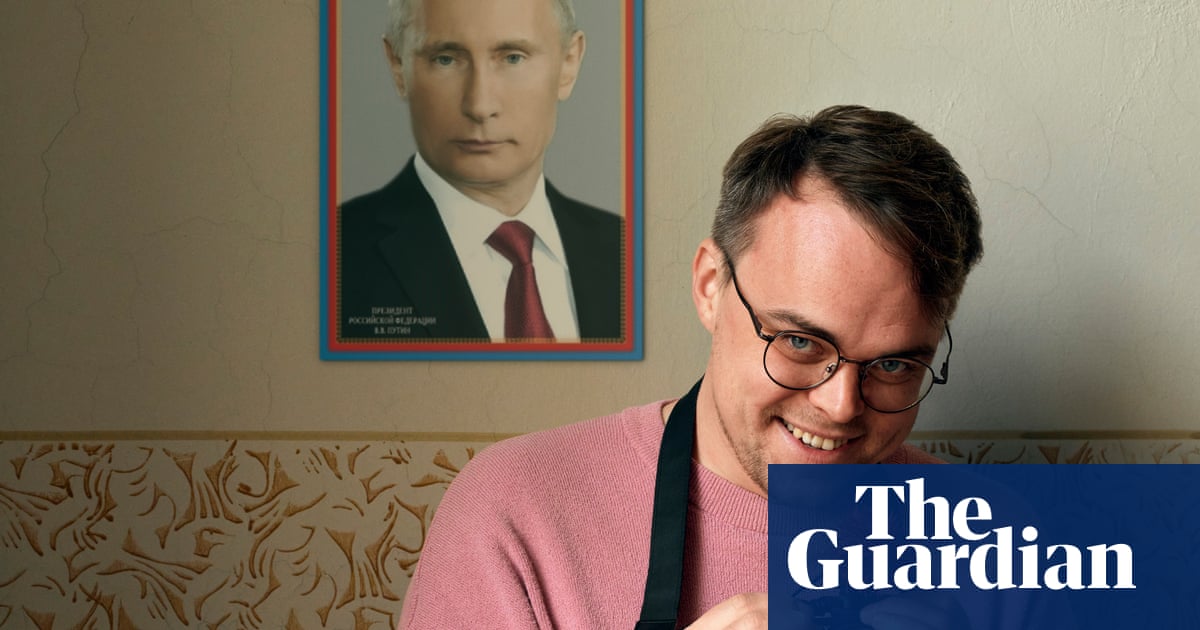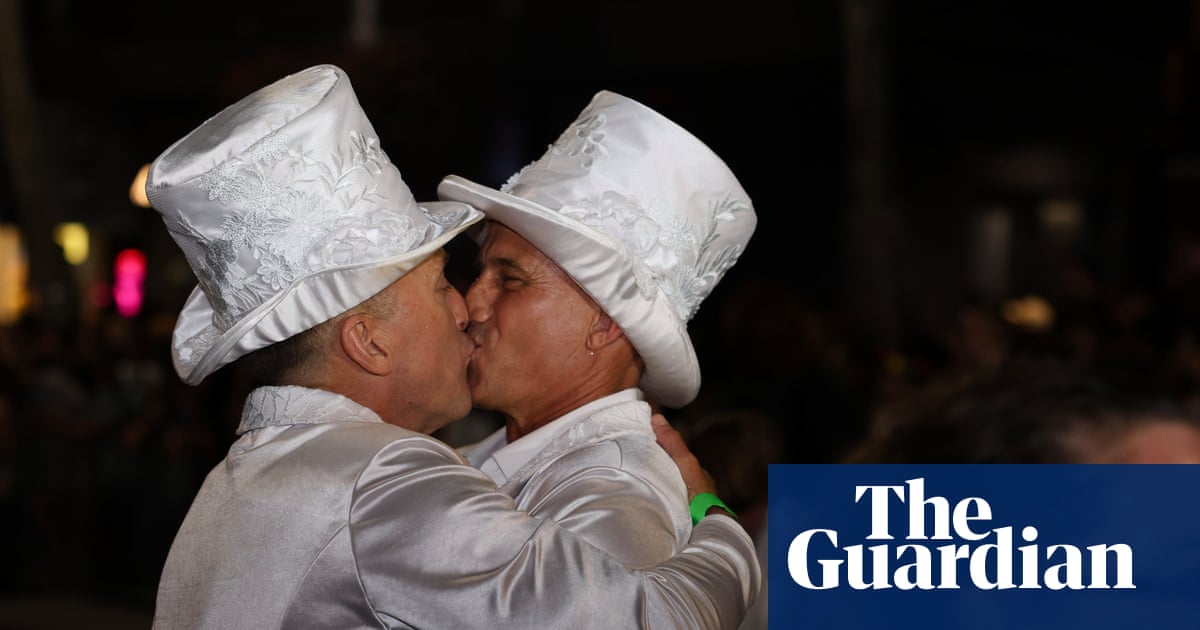‘My first impression? Deeply uncool’
Bruce Robinson – best known as the writer and director of Withnail and I – met artist Sophie Windham at an Italian restaurant in London in 1982. He proposed three days later. They have been married for 42 years and still live and work side by side in the Welsh borders. They have two grownup children, Lily and Willoughby.
Sophie
Bruce has been writing obsessively since I met him – and anybody who wasn’t creative themselves would have found that hard to put up with. We cut short our honeymoon after only three days because he had a script deadline, and today he still works until 10pm many nights. Because I’m a painter I can relate to that. He’s not pissed off if I vanish into my studio for the day.
When our children were little, I was very much “mum looking after the kids” and managing to illustrate books in my time off, and Bruce’s work came first. He was writing script after script, which was just as well because I couldn’t support a family on what I was earning. Now that our children have left home, things are more settled; we both spend the same number of hours working. Sometimes that means we spend all day apart and only come together at dinner time. Bruce likes good food, but if I’m not there he won’t eat. I think it’s because he spent so many years swilling red wine and chain-smoking. If you’re drinking a lot of wine, you don’t want to eat. Bruce isn’t drinking at the moment and quit the fags years ago, but he still never thinks about food. At lunchtime sometimes he will eat a pickled onion or an ice-cream. Then I cook a meal for us both in the evening.
My first impression of Bruce was that he was deeply uncool. It was the era of post-punk and all my friends had sticking-up hair, whereas Bruce was wearing a low-cut shirt and these awful cowboy boots. He also talked at me for 40 minutes about how much he hated Margaret Thatcher, and his ranting was a bit offputting. He still rants about Thatcher over dinner, but you can’t say I wasn’t warned. I try not to get him started on politics. Seeing him open the Guardian is my signal to run.
Through all of it I have remained very much in love with Bruce, because at his core he is a very kind, sensitive, funny person. I remember friends saying, “I’m not in love with my husband any more” but I could never relate to that. For many years I was obsessed with Bruce, really, and I think he was with me. It’s slightly different now we’ve been together for so long. It’s grown into a kind of deep love, rather than the besotted kind.
Bruce
Sophie doesn’t really annoy me or upset me in any way, even though I know she cannot say the same. The only time I get a tiny bit frustrated is when she shrugs off what is obviously a political breakthrough from me. She says it’s because she’s heard all of my political breakthroughs before, but that’s not true because I get new ones all the time.
We bicker a little bit, but I think we still genuinely enjoy each other’s company, even after all these years. We live in the countryside and we are very lucky to have a lot of space, so we can escape from one another when we need to. Escaping might be part of how we make our marriage work. We’re not too demanding of each other’s time. I am one of the few people in England who doesn’t own a mobile phone, and we don’t even really watch TV. I can’t stand all of that. Sometimes we read our books in the evenings, although Sophie likes novels, which I rarely do. I read textbooks.
We’ve worked on children’s books together, but I think one reason we are so compatible is because what we do is so different. There’s never been any competitiveness – if she’d been a writer, too, we might have spent all day arguing about commas. Soph can sit in her studio and have whole telephone conversations while painting. If I even have distant voices in the background, I can’t write. But we understand each other. She has to shut the door on me to work well and I have to shut the door on her.
I must admit to a variation of opinion in respect of our affection for red wine. I like to write on it because it shuts out the voice that says, “You can’t write that. You can’t.” I used to have a glass before I had my toothpaste in the morning, to get in the mood to write. Not the best of memories. But the fact that we are still together, and still love each other, must mean we got something right?
Sophie Windham’s next exhibition is at The Table in Hay-on-Wye, 4-17 May 2026. Bruce Robinson is directing the play of Withnail and I, due to open in London in the spring.
‘I often think, look at this woman go!’
Author Roxane Gay’s first contact with designer and podcaster Debbie Millman was a series of emails about her work that Millman sent and Gay never answered. They married during the pandemic and now split their time between Los Angeles and New York.

Roxane
About eight years ago, Debbie wrote me a beautiful email saying my book Hunger had resonated with her. She said it felt like I was writing the story of her own body. I remember feeling curious about her. But I’d never met Debbie at that point. She was just a stranger, writing to my work email account. Also, I was in a relationship at the time, so I didn’t respond. Luckily, Debbie is persistent and she took my silence in her stride. Over the next two years, she continued to email me once in a while, about pieces I had written and talks I had given. Finally, a mutual friend put in a good word for her, and by that point my relationship situation had changed, so I thought: what the hell? Debbie sent me a very formal message saying she would like to “take me out on a proper date” and I was charmed by the sentence construction of that. I was 43, and no one had ever asked me out so officially before. Debbie wanted the whole nine yards. Dinner! A proper date! She was very clear about her romantic intentions, and I appreciate clarity.
When we first met, Debbie was about to set off on a one-month round-the-world trip, and I found it very sexy that she didn’t alter her itinerary in any way to see me. Now, travel is a big part of our life together – even though I used to be the kind of person who was like: why go anywhere when we have a TV right here? Debbie and I travel well together because I’m the one who does all the organising. She has all the ideas, but I execute them. She’ll be like: let’s go to the top of the world. And I’m like: let’s not, but OK. Then I make the arrangements.
That said, if there’s anything wrong with our room or flight, Debbie is the one who goes and confronts someone about it. People always look at me thinking I’m the problem, but Debbie doesn’t tolerate any nonsense. I love that she is this way. I call her my little enforcer. Debbie is a typical Scorpio: fierce and headstrong. When we first started dating, we were walking down the street in Manhattan and this guy bumped into her, but it felt purposeful. She grabbed him, shoved him right back and said, “Watch where you’re going.” It was so impressive. I’ve spent my life walking next to the buildings on the sidewalk, thinking “Don’t take up too much space” but Debbie is the exact opposite.
To be fair, I am in charge of planning because I’m a lot more picky about where we stay. Debbie would be happy in a bug-ridden yurt. But my people are from Haiti. I’ve experienced all the discomfort I need in one lifetime. We went on an expedition to Mongolia together and you could either sleep in the Gobi desert with no plumbing or in the Shangri-La in Ulaanbaatar. Guess which one I chose? I prefer to do things with Debbie, but I also don’t want to hold her back from experiences she wants that I have no interest in. We’re both old enough and set in our ways enough to accept each other.
There’s no professional imbalance between us because we are both at the apex of our careers. We just finally opened a joint bank account, but we both have our own sources of income, so we don’t have arguments about money. Of course, you can still make it work if there are imbalances, but being equals makes things much easier. I’m not even just talking about finances. I’m talking about intelligence, too. In everyday life I often look at Debbie and think, look at this woman go!
Perhaps our relationship works partly because we met when we were older. Thirty years ago, I wouldn’t have been ready. I was still in deep trauma recovery, whereas now I’m more able to communicate. Debbie is very feelings-forward, whereas I’m like: my feelings are inside me and they’re never coming out. I know Debbie does not like me clamming up, but she will keep asking, because she loves with such fierceness. Debbie doesn’t think of herself in this way, but she is extremely passionate. Being loved by her is so all-engulfing and complete it can sometimes actually be a little terrifying because I think: it’s just me. How can you love me so much?
Debbie
Persistence is definitely one of my character traits, except when it comes to romance. With Roxane, though, everything felt different. From the beginning, I felt so in tune with her that I was never tempted to act out of insecurity or play games. With Roxane, I felt calm for the first time ever.
I’ve been married twice before. Third time’s the charm. My previous spouses were men and, no surprise, they didn’t work out. I always had a suspicion I was gay, but I had a very difficult upbringing and the thought of being any more “different” than I already felt was too much to bear. With two marriages behind me, I never thought I’d marry again – but I also knew I loved Roxane and she was my soulmate and lifelong partner. She had always wanted her father to walk her down the aisle – and to make her happy, I’d do anything. Now, marriage feels different. I love being married to her.
I have a complicated relationship with my family, so I’ve felt lucky to be embraced by Roxane’s parents so thoroughly. We love to travel together as a group. We lost Roxane’s mom last year, which has been very hard. We are hoping that her father will move in with us. We have a guest house attached to our home that would be perfect, although he understandably doesn’t want to give up his independence. But we spend a lot of time with him. We also have our cats and dog to care for. The pets are really in charge at home. Roxane and I are just tenants.
We try to be cognisant of when we each go into deep loss mode. I’m a crier. Roxane says I’m good at telling her precisely what I need in a difficult moment. Sometimes I’ll say, “I don’t need you to fix it.” So then she just listens. Chris Rock has a standup routine where he’s talking about how his girlfriend comes home from work, starts talking about her day, but doesn’t actually want any feedback; she just wants him to listen to her complain about her friend or colleague or boss. So Chris goes into what he calls “That bitch be crazy” mode. So sometimes Roxane says, “Do you want feedback, or do you want ‘That bitch be crazy’?” If it’s the latter, she will just nod and listen and declare, “Oh my God!” or, “How dare she?!” Roxane isn’t so forthcoming with her own emotions, but I always say, “I know there is something going on. So unless you want me to keep asking you, you have to just tell me.” She knows I won’t give up.
Roxane and I are very different, but there are also so many things we have in common. Like the fact that we both love live theatre. We also love going to see art and music together. We are both night owls, which is convenient. I actually go to sleep slightly earlier than Roxane, but she sits in bed next to me and plays online puzzles.
When I was younger, I used to fantasise about what kind of person out there in the world would be right for me. I used to have a vision of someone being really amused by me – and that is Roxane! She really is amused by me. We laugh together all the time, even at the silly little songs I make up. She helps me love being myself, because she just seems to enjoy who I am so much.
Roxane Gay edited The Portable Feminist Reader (available now, Penguin Random House). Debbie Millman is the host of podcast Design Matters. Her book Love Letter to a Garden (Hachette) is out now.
‘We use a traffic light system to tell each other about our tension levels’
Laura and Jon McClure – best known as the keyboard player and frontman of Reverend and the Makers – fell in love while forming their band in the noughties, and spent their early relationship partying until dawn and touring the world. Two decades, two children and countless gigs later, life has a different rhythm.
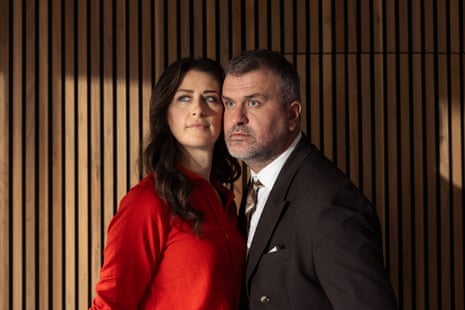
Laura
When I got pregnant, eight years into our relationship, it was a culture shock. Then I got pregnant again, and being a touring musician became even more logistically crazy. I’d be backstage with my boobs filling up, desperately trying to find a quiet spot to pump.
We wouldn’t be able to manage to make things work day-to-day if we didn’t have a huge familial support network. Jon comes from a working-class Sheffield family, where it’s normal to have loads of aunties and cousins pitch in and lend a hand with childcare. My parents help a lot, too. Spending kid-free time together is important – but it can be equally important for John and I to spend a bit of time apart. I sing comedy songs with another band as a side project and Jon is always bigging that up. I also recently did a counselling course and Jon was so supportive of that. He said, “Don’t even question it. We will make the hours work, no matter what.”
The wheels came off our marriage a bit during Covid because we were trapped at home together, in each other’s faces all day, with no individual creative outlets at all. Jon is a messy fucker. And in normal life, I’m like, what does that matter? Jon loves me, and he tells me I’m beautiful every day, and he tells me I’m a great mum. But when you’re at home together all day, dirty pants at the side of the bed suddenly seem so disrespectful. I’d look at Jon’s pants and be like: you don’t respect me at all!
At one point during Covid, Jon bubbled with a group of other musicians and went off to make a record. In one sense it was great because it meant we no longer had to panic about money, but then again: I was all alone home schooling the kids. We’d speak on the phone and Jon would be telling me about some caviar the label had provided for the musicians in the studio that day, and I’d be sitting there eating fish fingers and chips. The resentment worked both ways, though. Jon was missing our kids and feeling envious of my close bond with them, whereas I was madly jealous he got to have a poo without somebody watching him.
During that rough patch, we developed a few new ways of communicating that still help us today. We use a traffic light system to tell each other about our tension levels. So I will say to Jon, “I’m on amber today, babe. Feeling a bit antsy and something could tip me over to red.” Or, “I’m on red: be aware.” Jon has got better at saying, “What can I do to help?” Even if I pretend I’m fine and handling everything perfectly, he’s learned to step in and organise things so I can go for a walk or see my mum for the afternoon.
I think it can be tempting to just muddle through a bad period of a marriage. You let the difficult things lie dormant and hope that ignoring them will somehow make them go away – but they don’t. I’m a bit of an ostrich and tend to bury my feelings. Jon is actually better at being open. What I love about him is that he wears his heart on his sleeve. He has this zest for life that is just infectious. His enthusiasm is infuriating sometimes, too. But I love it.
Jon
The reality of being married to someone for 16 years is that it’s hard sometimes. We’re in a band together, and before the kids came along we were partners in crime. We could be completely spontaneous. It would be like: do you want to go to Vietnam tomorrow? And Laura’s reaction was always just, yes! Let’s get off then! But now, there is an implicit understanding that when push comes to shove, Laura will stay at home with our children and I will go and do the gig. That creates a weird dynamic where I get to do all the “fun stuff”, but Laura gets to be with the kids and get all the cuddles. I miss our children so I get jealous. I do have to go away, by virtue of being the frontman. I need to gig and earn money. But there’s an element of sexism to it all that I recognise. To this day, my mum will come over and if the house is a mess because we’ve both been on tour, there will be the unspoken assumption that it’s all Laura’s fault.
Covid was a difficult time for us. We were together constantly, but it felt like we never sat down and had any proper conversations. By the time we got the kids to bed, we were too exhausted from home schooling. I’ve always had a side to me that is angry. Not violent, but argumentative. I’d walk around in a rage, but I found it hard to know what I was actually feeling. During that time, we saw a counsellor who helped me articulate “I feel sad” or “I feel jealous”. Sometimes I think your job as a partner, and as a parent, is to be a kind of human sieve. You take what you saw the couples in your family doing and try to keep the good bits, but sieve out the bad. Laura is more emotionally intelligent than I am, but she has taught me a lot. She has made me a better human in that regard.
Before I got together with Laura, I didn’t really believe in marriage. I thought it was just a silly piece of paper and a waste of money. But I remember one night Laura gave me a lecture that changed my mind. She said we celebrate a lot of things in life that don’t technically mean anything. Like getting another year older. Why shouldn’t you celebrate finding the person who you want to share children with and tell your deepest, darkest secrets to? What could be a better cause of celebration, really?
Reverend and the Makers’ eighth studio album, Is This How Happiness Feels?, is released on 24 April 2026 through Distiller Records.
‘It’s not about every day being perfect’
Novelists Greg and Kate Mosse met at school at 16, reconnected on a train in their late 20s, and married at 40 when their now grownup children, Felix and Martha, were seven and nine. Caring for elderly parents means their home in Chichester is always hectic.

Kate
Since Greg’s mum moved in with us in 1999, and later my parents, too, there have been many birds in the nest. That might put a strain on some marriages, but not ours because we’ve known each other’s families always. We have the capacity to love and care for each other’s parents unconditionally, as well as our own. Greg cared for my dad, who had Parkinson’s, and I look after Greg’s mum, whom I love dearly. Caring has been a privilege, not a burden, though it’s left us with less freedom than most people in their 60s. We can never be spontaneous, but we’ve learned to carve out time, just us, even if it’s just a pub lunch.
I had always thought of marriage as a patriarchal trap. But when people kept asking whether Greg was the father of our children, we got married in a low-key way. It didn’t change our relationship – having children was the most significant decision we’ve made. Neither of us had planned to be parents, but we knew we wanted children together.
People often assume that Greg did most of the childcare because he worked fewer hours and I was in the public eye as a novelist, but everything has always been shared. One of us steps forward while the other steps back, depending on what’s needed. And, over time, it balances out. We support one another 100% in whatever we’re doing, and we’re equally proud of each other’s successes. We respect each other. We still find ourselves sitting on the sofa, giggling at the same thing.
What I admire most about Greg is his integrity. His sense of self has never been predicated on his work or what other people think of him. It takes a lot for men to escape the idea of being the breadwinner, but Greg’s work is about fulfilment and satisfaction, which makes his enjoyment of what he does wonderful.
Because we’re in the same industry, we share our novels with each other first and know what it all means. But we have very different writing schedules. I obsess while I’m writing a book, then collapse once it’s done. Greg is very methodical. I don’t talk about my work while I’m in the middle of it. Greg carries his more lightly.
If you’re lucky to find a person who suits you so completely, it’s not about every day being perfect. As carers, there’s often a lot of pressure on us, but we don’t take those things out on one another. We don’t always agree, but when we disagree, it’s not in a way that festers or matters in the long term. Sure, it’s annoying when you want to buy more cushions, but your husband says we already have too many. Or that wherever I put something in the dishwasher, Greg will move it. But it’s about letting those things go, while still standing your ground. We don’t give weight to things that don’t matter.
Greg
Kate’s home life was secure and solid, whereas mine had been disruptive and unanchored. Coming back together, Kate offered me the long-term sense of stability I’d been missing. I took her surname in August 1989, before we got married – it was important to me to have the same name as her and our children.
Living with our parents and children has been difficult at times because different generations have different wants and needs. When our kids were teenagers, life was like one eternal Glastonbury for them, while the older generation wanted their bowl of Alpen at the same time every day. And as their health declined, we had to manage life around helping to shower them, dressing wounds and arranging carers. As a couple, we had to plan spontaneity.
Emotionally, I didn’t need marriage. From the moment we reconnected on the train, I had complete confidence in our relationship. We support each other, and that partnership has always guided our decisions. When Kate was starting out as a writer, I trained to be a teacher because it made the most sense for our family. And as she became more successful, I stopped teaching full-time and kept afternoons free to support our home life.
We have different tastes in many things – someone once said the only thing we have in common is each other – but we don’t argue about small things or look for reasons to be annoyed. Even if the house is full of cushions, the dishwasher is stacked incorrectly or the fridge is overflowing with food, the way she likes it. Kate has an extraordinary capacity to give, and I have been one of her good works. For that, I will always be grateful.

.png) 3 months ago
52
3 months ago
52

